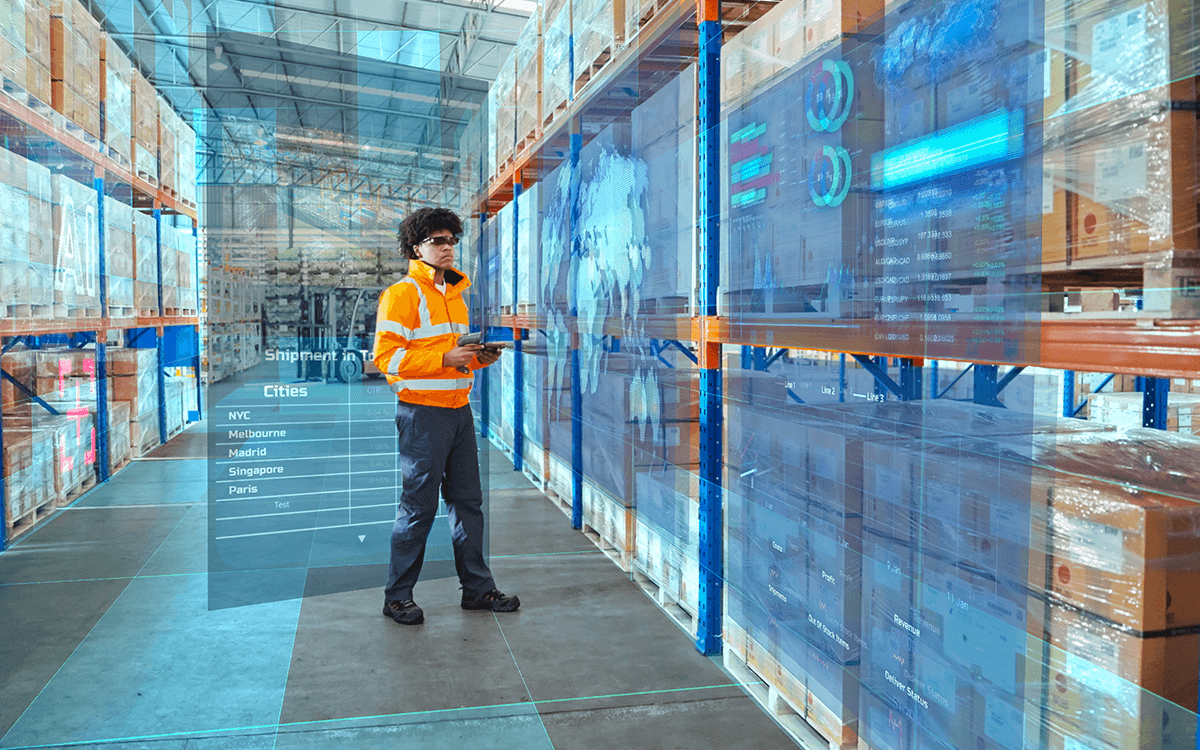CX in retail: How to deliver sustainable business outcomes with data-driven strategies
Fujitsu / April 26, 2024
As technology becomes more and more integrated into our daily lives, data volumes are growing exponentially. Through mobile apps and social platforms, there’s ever-increasing information being gathered on how we live, work, and shop. And with the right tools in place, this information is incredibly powerful for retailers. Data can fuel efforts to enhance business efficiency, improve customer experiences, and foster loyalty – giving you the intelligence you need to build stronger competitive defenses.
Yet, with the accelerating pace of available data, there are also rising, subsequent risks in terms of its distribution. From information falling into the wrong hands to accidental loss, it’s vital to keep it secure, up to date, and accurate in order to grow your business in such a competitive climate. Central to achieving this is a sustainable, data-driven approach. That’s about more than just implementing the latest technology to keep track of things; it’s about using that technology to drive both performance and sustainability targets. Read on to learn how you can extract the most value out of your data to create seamless shopping experiences and introduce more sustainable practices. And the benefits this can bring to your retail business.
The integrity and security dynamic
Safeguarding data is highly important for any business. Protecting it against both accidental loss and malicious activities is critical for a number of reasons, like avoiding reputational damage or paying huge amounts in ransom to attackers. Data security is also mandatory, of course, with laws in place such as the General Data Protection Regulation (GDPR) – a European Union regulation which establishes the circumstances under which it’s lawful to collect, use, disclose, destroy, or otherwise “process” personal data. We’ve seen a rise in regulations like this across the world ever since the potential of big industry data was realized.
For retailers, however, it’s particularly important to protect data. And that’s down to the sheer number of people this industry touches. If customer data is damaged, lost, stolen, or compromised in any way, the consequences can be catastrophic. At worst, it can hurt your customers, meaning you lose their trust and loyalty. You only need to look at cases such as Home Depot’s 2014 data breach of 56 million debit and credit cards, costing the company $200 million(*1). At Fujitsu, we see sustainability as more than just environmental measures. It’s about making the world more sustainable by building trust in society through innovation. And with a multitude of touchpoints to connect with customers, that means retailers need to ensure an effective and seamless omni-channel experience – protecting their customers’ data at every point.
This relationship between data security and business operations is especially critical in an era where transactions occur through different digital channels. But there’s a real need to extend the robust security practices traditionally applied to payment data in other areas of retail. And that’s because robust data strategies are also about more than just safeguarding. For example, imagine being able to secure your supply chain data to fulfil orders and optimize operations to the same degree as protecting credit card information. With such sturdy measures in place, the ripple effect of any breach is lessened throughout the organization. In addition, this elevated control over data opens up opportunities for the good of your business, over and above safety concerns. Think, more personalized customer experiences (CX) to meet modern’s shoppers’ demands. And tighter waste management to lower your organization’s planetary impact.
Securing your data is the first step. But to achieve the above, you need data integrity too. And balancing these two objectives is key to navigating the evolving retail landscape. For instance, if you’re monitoring your supply chain for excessive inventory (with the aim to reduce stock loss), you need to know the data you’re looking at is correct. That means ensuring it’s not open to abuse, hasn’t been tampered with, is accurate, and up to date. For instance, blockchain technology can ensure traceability and helps to limit duplication. While certain sets of data demand a stronger focus on security measures, all primarily require accuracy and consistency for clear decision making. And this distinction between data security and integrity is crucial when crafting a nuanced approach to data management in retail.
More doesn’t mean better
In today’s customer-facing sectors, there’s an assumption that the more data you gather, the better you’ll know your business and customers – and therefore the better your market position will become. That’s not entirely wrong, but it slightly misses the mark. True, gathering more information about your customers, your operations, your employees, and your sustainability progress is an essential step to move forward. But successful transformation of your retail business depends on the way this data is mined, analyzed, and actioned. Like all business goals, there needs to be a clear strategy in place – the thinking behind the ambition. What we might call, the “why”.
Case in point, the push for introducing more sustainable practices is based on decreasing environmental impact and solving societal issues for the benefit of current and future generations. Initiatives such as reducing waste or lowering CO2 emissions carry a higher purpose to help people, the planet, and society thrive. In the same way, building an ecosystem that promotes greater collaboration between governments, companies, and individuals means we can collectively unlock new approaches and insights. And that’s because no single organization can respond to the numerous crises we must tackle today like cybercrime, poverty, and human rights issues. Furthermore, collating and analyzing customer data comes from the ambition to remain relevant and align with modern values. So, you can personalize offerings and meet CX demands. This is why a data-driven approach is integral to successful retail models. It’s managing, using, and protecting data to drive better performance in a more efficient, sustainable world.
It's also important to apply this pragmatism to your technology investments and solutions. As stated, the right tools can help you get closer to achieving your goals. And the advent of cloud technology and AI capabilities has made it far quicker and easier to collect data and analyze it at pace. But it’s important not to jump into investing in costly emerging technology without understanding what will work well for your particular organization. Retailers should review and prioritize their business targets first. Then, they can work out how to apply different solutions to different datasets.
Let’s make the data-driven retail environment of tomorrow
With the growing use of innovative technology in retail, a data-driven approach is essential to seize every opportunity and make your sustainability targets a reality. So too is having the right technology partner to guide you on your journey.
Fujitsu can support retailers like you looking to transition from the old world to the new world with tools, knowhow, and services. We can help you unite your data sets, so you can move forward with ironclad security and integrity. And we’ll support you to get the most value out of your data and align your business objectives with sustainable, safe practices that enhance CX and future-proof your organization. Our global reach, along with our partner GK Software – a leader in retail solutions for 30 years – means we can provide trusted end-to-end implementation, services, and support. It’s all possible with our solution, Fujitsu Uvance.

Editor's Picks












